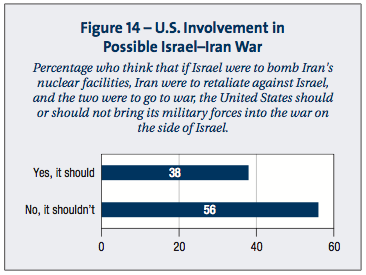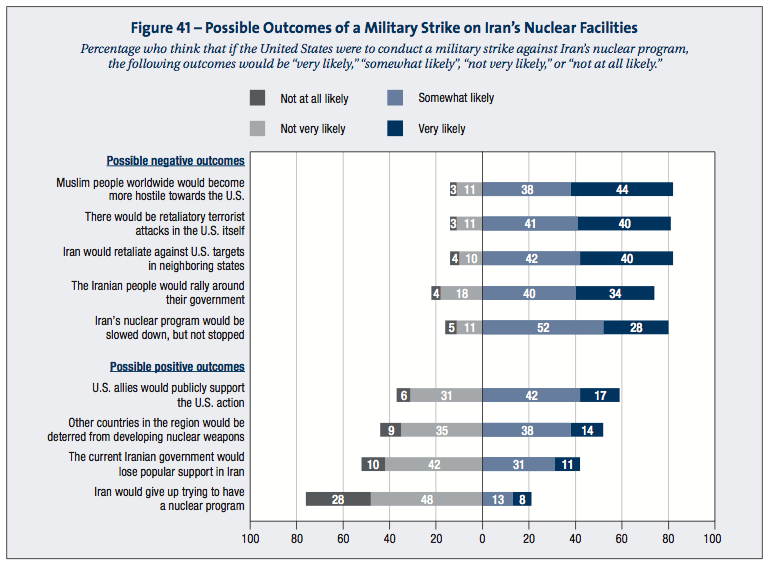Emerson, a self-styled expert on terrorism, came under fire after the Tennessean newspaper ran a lengthy investigative piece exploring the relationship between the Investigative Project, where Emerson is the executive director, and SAE Productions. In 2008, SAE took a $3.4 million dollar payment from the Investigative Project, a tax-exempt non-profit.
An investigation of donor tax records from 2001 to 2007 reveals an even more intricate web of organizations. The records show more than $1.6 million in contributions to the “Investigative Project,” “Investigative Project on Terrorism,” and “IPT” in care of a largely unknown group called the Counterterrorism & Security Education and Research Foundation (CTSERF).
Much like the Investigative Project, CTSERF tax forms list the transfer of all grant revenues to a for profit entity, the International Association of Counterterrorism and Security Professionals (IACSP), in the form of “grants for research on issues of terrorism and counter-terrorism.” It is difficult to determine how the money is disbursed or used after it is transferred, since the IACSP, unlike the CTSERF, is a private for-profit entity.
While the grants are directed to The Investigative Project care-of the CTSERF, neither CTSERF, IACSP nor the Investigative Project’s websites make any mention of a relationship between the CTSERF and the Investigative Project.
“This is a convenient arrangement for avoiding disclosure and allowing tax deductions,” Daniel Borochoff, president of the watchdog group American Institute of Philanthropy, told me.
“[The tax deductible donations] are publicly subsidized money that the non profit is receiving. There has to be accountability on what was accomplished with this publicly subsidized money,” Borochoff continued.
When contacted for comment about the relationship between the IACSP/CTSERF and the Investigative Project, Ray Locker, the Investigative Project’s managing director, would only say that a relationship “exists.” He added: “It’s all above board and passes muster with the IRS.”
In a follow-up email exchange, Locker said, “We don’t discuss our sources of funding because of the nature of the work we do. Our founder, Steven Emerson, has received death threats in the past, and we are trying to protect his security and that of the organization.”
Despite the lack of detail, Locker was upfront about the relationship. However, Emerson would not confirm a connection between the groups when I queried him in 2008 about the listing of IACSP’s web address at the bottom of a 2007 Investigative Project press release.
Emerson e-mailed that he had “no idea how the IACSP website address got listed on the Lexis-Nexis version of our press release. We are not a project of IACSP although we have frequently published material in their magazine” – the Journal of Counterterrorism & Homeland Security International, a quarterly journal published by the association.
“As for funding questions, other than what we have stated on our website, that we take no funds from outside the U.S. or from governmental agencies or from religious and political groups, we have a long standing policy since we were founded not to discuss matters of funding (for security reasons),” wrote Emerson.
The IACSP describes itself as “a center of information and educational services for those concerned about the challenges now facing all free societies, and promoting professional ethics in the counterterrorism field.” CTSERF’s stated mission is to “develop education programs and materials for security professional and the general publics that will enhance our understanding of the causes of terrorism and the measures necessary to deter and combat it.”
Both organizations are headed by Steven J. Fustero, who serves as the chief executive of the CTSERF and the President of the IACSP. When contacted for comment about the grants directed to the Investigative Project by the CTSERF and the transfer of all grant revenue to his for-profit entity, the IACSP, Fustero responded, “I originally founded IACSP in 1986 so I’ve been in the counter-terrorism industry for almost 25 years. During this entire period I’ve never publicly discussed how people or various think tanks in the industry, including IACSP, conducts their affairs, aside from what the IRS obligates me to disclose – for example in the 990s, where I’m sure you see that we disclose that CTSERF ‘was established by the officers the International Association for Counterterrorism and Security Professionals (IACSP). The research and education designated funds are therefore transferred to IACSP, which in turn makes the research grants.’”
An examination of CTSERF tax documents from 1999 to 2008 show the group receiving $11,108,332 in grant revenue and transferring $12,206,900 to the IACSP.
Grants written to the CTSERF and directed to the Investigative Project included a total of $400,000 over four years from the Russell Berrie Foundation and $1,225,000 from the Carthage Foundation over a six year period.
Neither the Carthage Foundation nor the Russell Berrie Foundation responded to repeated calls for comment.
Other high profile donors to the CTSERF include casino magnate Sheldon Adelson, whose foundation contributed $250,000 in 2006, and billionaire Obama supporter Lester Crown, whose foundation wrote grants totaling $75,000 between 2006 and 2007. Neither Adelson nor Crown specified the Investigative Project as the end recipient of their funding.
]]>Most striking (no pun intended) was that only 18 percent of respondents think the U.S. should launch a military strike on Iranian nuclear targets now. Even if diplomacy and sanctions fail to stop Iranian advancement toward a bomb, a slim plurality still think the U.S. should not bomb Iran (49 percent oppose it, 47 would support it). More than half of respondents say if Israel starts a war with Iran, the U.S. should not leap to Israel’s defense.
The Chicago Council, Obama’s hometown think tank, released the report yesterday at the Brookings Institution in D.C., an indication of the Council’s well-connected policy circles. Worth mentioning is that the chairman of the Council’s board of directors is top Obama fundraiser and early supporter Lester Crown, patriarch of the Crown family empire. The Obama administration even announced, at a symposium convened by the Council, food programs based on Council recommendations.
One should note that this survey was conducted in June. That means that the more than 2,700 responses came before the latest round of chatter about attacking Iran, sparked by Jeffrey Goldberg‘s August article about a potential Israeli strike on Iran in the Atlantic.
Before this chatter kicked off, that when respondents were asked should Israel bomb Iran and Iran retaliate, sparking a war between the two, whether the U.S. should stay on the sidelines, “a majority (56%) says the United States should not bring its military forces into such a conflict, with 38 percent saying it should.” (See chart labeled “Figure 14.”)
The Chicago Council explains this aversion to jumping in, known as “selective engagement,” by pointing to factors like the economic crisis at home. With military forces over-extended already, Americans are not keen on fighting the wars of others. Their focus, according to what the Council calls the First “Principle of Selective Engagement,” is “Support for actions against top threats.” The focus here is on “clear and direct threats to the homeland.”
However, according to survey respondents, Iran does pose a “‘critical’ threat to U.S. vital interests in the next ten years.” The second priority listed in that category — behind “international terrorism,” with 73 percent — was “the possibility of unfriendly countries becoming nuclear powers.” Sixty-nine percent of respondents called it a “‘critical’ threat.” Iran’s nuclear program, as a distinct choice, was a close third on the list with 68 percent giving it the “critical” designation.
But the report notes that “while Americans favor actions to try to stop the country from enriching uranium and developing a weapons program, there is clear hesitation to resort to military action because of the perceived dangers and limits of such a response.” This, says the Chicago Council, is because Americans reported back with some certainty that a litany of negative consequences would follow a U.S. strike on Iran. (See chart, labeled “Figure 48.”) About four in five respondents think nearly every negative consequence of a strike listed is “likely” or “very likely,” and about the same amount think a strike would not cause Iran to abandon its nuclear program. Furthermore, three quarters of respondents thought that a U.S. strike would cause Iranians to rally around their government.
So how would people in the U.S. like to deal with nuclear Iran? The Chicago Council report says (with my emphasis):
At this point in time, Americans favor trying to resolve the problem of Iran’s nuclear program through non-military means. More significantly, even though 54 percent now oppose diplomatic relations (up 16 points from 38% in 2002 when 58% were in favor), 62 percent favor U.S. leaders meeting and talking with Iran’s leaders. When asked their views of what the United States should do if Iran continues to enrich uranium in defiance of the UN Security Council, which has asked it to stop enriching uranium, Americans are not immediately ready to resort to a military strike. Only 18 percent say the United States should carry out a military strike against Iran’s nuclear energy facilities, with 41 percent preferring to impose economic sanctions and 33 percent wanting to continue diplomatic efforts to get Iran to stop enriching uranium (only 4% do not want the United States to pressure Iran to stop enriching uranium).
Even if those preferred mechanisms — sanctions and diplomacy — fail, respondents of the survey were nearly split on whether the U.S. should then attack in order to prevent an Iranian nuclear weapon: 49 percent oppose a U.S. attack and 47 percent would support it. Interestingly, only 45 percent of respondents think the U.S. can run a program of Soviet-style containment on a nuclear Iran. And, a majority of 55 percent of those who would oppose bombing Iran even as a last resort to prevent it from going nuclear think that Iran can be contained.
On a note of the specific direction of policy, a slim majority of respondents believe that if a robust system of international inspections were in places as an insurance policy, Iranians should be able to manufacture their own nuclear fuel for peaceful electricity-generating purposes.
These splits in opinion are surprising, considering the priority put on Iran’s program as a “‘critical threat.” Furthermore, Iran was tied with North Korea “at the bottom on the scale of ‘feelings’ toward other countries.” While Americans don’t ‘like’ Iran, they view it as less important a country than they have in previous Chicago Council surveys. Although a majority thought Iran is either “somewhat” or “very” important, those numbers are down. Nearly two in five Americans think Iran is unimportant.
Finally, it is important to consider the partisan divide when interpreting the survey’s findings. On the question of jumping into an Israeli-Iranian war started by Israel, “Majorities of Republicans support … bringing U.S. forces into a war with Iran on the side of Israel prompted by Israeli strikes on Iran’s nuclear facilities (52%).” Only a third of Democrats support that same proposition.
]]>

